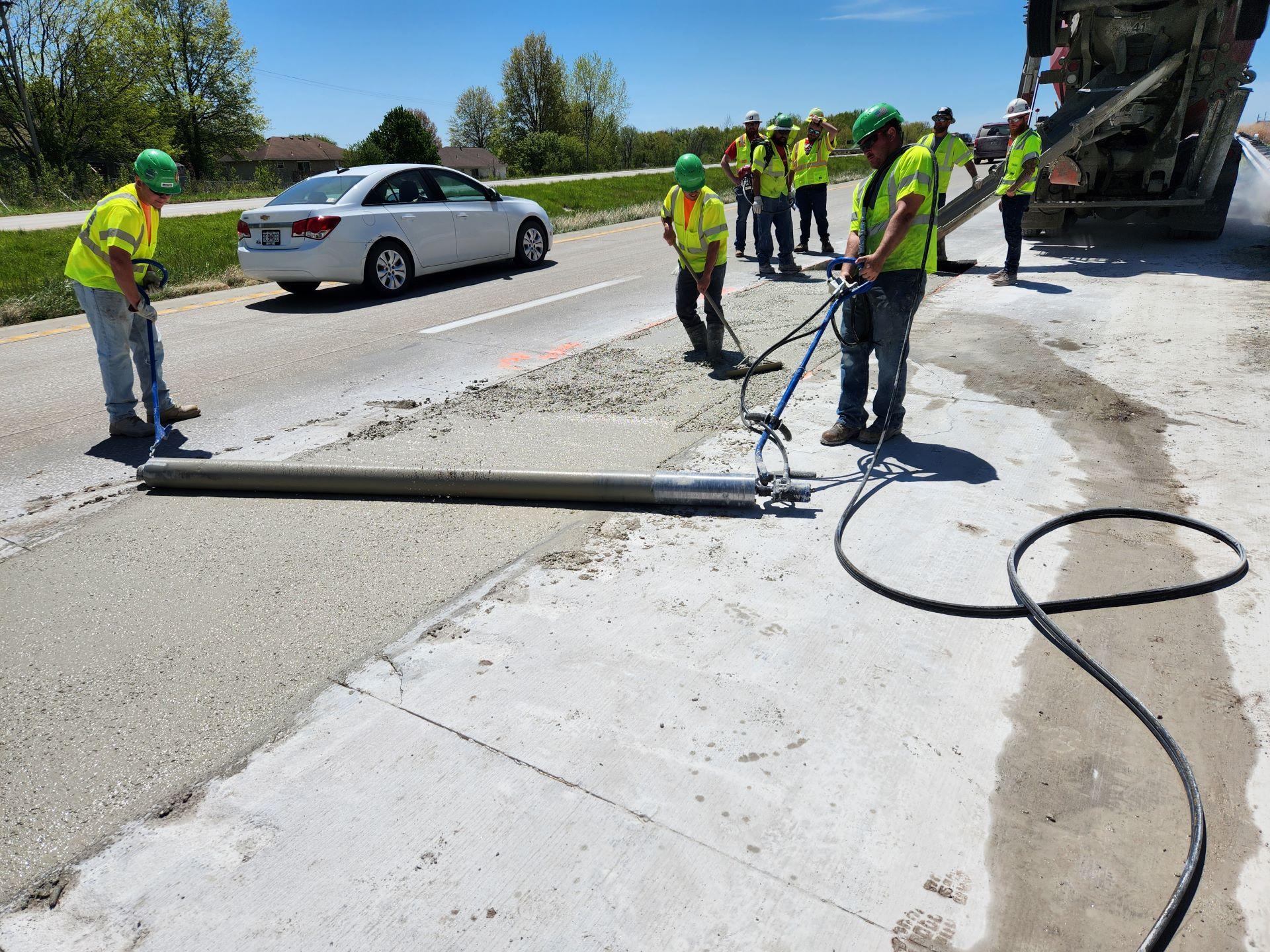
Overview
The Missouri I-35 pavement rehabilitation project proved that Rapid Set® Cement can be successfully produced and placed using a conventional ready mix plant—dispelling the common concern that the material sets too quickly for drum truck delivery. The Missouri Department of Transportation (MoDOT) required a rapid-setting concrete that achieved 4,000 psi in four hours while meeting strict shrinkage and durability criteria. This profile shows how ready-mix producers, contractors, and DOT agencies can successfully manage set time, quality, and logistics when using Rapid Set in large-scale infrastructure projects.
Key Objectives
Project Description
Faced with widespread early deterioration of concrete patches, MoDOT implemented a specification requiring high early strength and low shrinkage without relying on traditional Type III cement or chloride-based accelerators. Clarkson Construction, the project contractor, partnered with Geiger Ready Mix to deliver a solution using Rapid Set® Cement—a fast-setting, belitic calcium sulfoaluminate cement well suited for demanding pavement applications.
Unlike previous projects where Rapid Set was delivered via volumetric mixers, the I-35 project used Geiger’s central batch plant in Liberty, Missouri. With haul times reaching up to 45 minutes and nearly 3,000 cubic yards of material to place, the team relied on standard 10-cubic yard drum trucks and careful logistics planning. Temperature fluctuations throughout the project ranged from the high 30s in spring to 105°F in summer, pushing the limits of ready-mix delivery for rapid-setting concrete.
The mix design was optimized to provide both speed and flexibility. A typical batch included 600 lbs/cu yd of Rapid Set Cement, a water-cement ratio of 0.40, high-range water reducer, air-entraining admixture, and citric acid as a retarder. The citric acid dosage was adjusted daily based on ambient conditions, with careful monitoring of concrete temperature, slump, and set behavior. Moisture content of aggregates was tested several times daily, and trucks were kept in the shade or cooled to maintain consistent material performance.
Quality control played a central role in project success. Geiger conducted trial batches and a full-scale test slab prior to production. During construction, the first truck of every shift was tested for slump, temperature, and air content. Onsite teams carried extra citric acid for emergency adjustment, and curing compound was applied immediately after finishing to protect against rapid moisture loss.
Despite the aggressive setting characteristics of Rapid Set, placement crews had ample working time. Paving was completed using standard mechanical finishing tools and saw cutting followed conventional practices. The project saw no major issues with workability, finishability, or set control, even on the longest hauls and hottest days.
Conclusion
The Missouri I-35 rehabilitation demonstrates how Rapid Set® Cement can be reliably produced in a ready-mix plant and transported via drum truck—even on large-volume projects with challenging weather and haul distances. The successful outcome shows with proper planning and execution, Rapid Set is a high-performance, high-speed alternative to traditional portland cement that is not limited to volumetric mixers.
For producers or agencies seeking to reduce lane closure time, improve durability, or expand into rapid-setting concrete, CTS offers the technical guidance and project support needed to ensure success.